|
|
Post by Bonobo on Nov 30, 2008 17:17:09 GMT 1
90 years of universal suffrage in Poland
Polish Radio
28.11.2008
90 years ago today Polish women received the right to vote. Poland's leader Józef Pi³sudski signed a temporary decree which was later
confirmed in the new Constitution. Immediately after Poland regained independence on November 11, 1918 Polish suffragettes launched their own offensive, picketing in the bitter cold outside Pi³sudki's villa in Warsaw and beating his windows with umbrellas. Today, women in period clothes (and armed with umbrellas) entered the Polish Parliament, starting a day of celebrations of the anniversary. Among the events in Warsaw and around the country are films, readings, lectures and discussions on Polish suffragette and gender equality
movements.
|
|
|
|
Post by Bonobo on Jan 30, 2013 19:51:42 GMT 1
Poland doesn`t need feminism or women liberation movement. Why? As a matter of fact, Polish women could be independent whenever they wanted. Polish males have always accepted that and never ceased to revere their female partners - probably as a result of the cult of Mary, God`s Mother, in Poland. Besides, when men went to combat during wars or risings and got killed or deported to Siberia, it was Polish women who took care of everything, children, household, business etc. 
Hanna Beata Gronkiewicz-Waltz (Polish pronunciation: [ˈxanna ɡrɔnˈkʲevʲit͡ʂ ˈvalt͡s], born 4 November 1952 in Warsaw) is a Polish liberal-conservative politician who has been the Mayor of Warsaw since 2 December 2006. She is the first woman to hold this position.
Between 1992 and 2000, she was the Chairman of the National Bank of Poland, the central bank of Poland. She resigned to take the position of the Deputy Chairman of European Bank for Reconstruction and Development, a position she held between 2001 and 2004.
Gronkiewicz-Waltz was elected to the Sejm on 25 September 2005 after receiving 137,280 votes in the 19th Warsaw district, running on the Civic Platform list.   |
|
|
|
Post by tufta on Jan 31, 2013 10:38:49 GMT 1
Head of CERN (European Organization for Nuclear Research), the one looking,among other projects, for Higgs boson aka "God's particle" and one of the most important research centres worldiode is from Kraków  Professor Agnieszka Zalewska 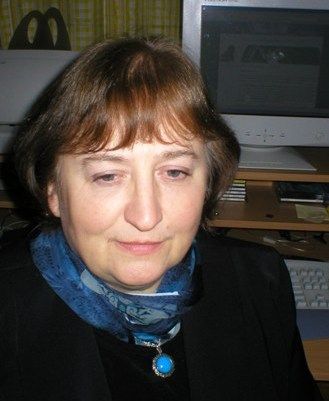 |
|
|
|
Post by Bonobo on Feb 10, 2013 21:43:40 GMT 1
|
|
|
|
Post by tufta on Feb 12, 2013 18:36:57 GMT 1
Agnieszka Duczmal, the first woman-conductor ever to direct in famous La Scala in Milano  |
|
|
|
Post by Bonobo on Feb 13, 2013 0:33:51 GMT 1
Agnieszka Duczmal, the first woman-conductor ever to direct in famous La Scala in Milano Wow! Never heard of her. I am a barbarian when it comes to opera etc. |
|
|
|
Post by tufta on Feb 13, 2013 20:36:39 GMT 1
no worries, you do your norm in other departments  But in that case one more: Aleksandra Kurzak, soprano, currently one of the most busy worldwide, see her schedule www.aleksandrakurzak.com/schedule/ |
|
|
|
Post by tufta on Feb 16, 2013 9:42:55 GMT 1
Maria Siemionow, surgeon who performed the first face transplant in the US  |
|
|
|
Post by tufta on Feb 16, 2013 19:28:04 GMT 1
|
|
|
|
Post by tufta on Feb 17, 2013 8:33:25 GMT 1
El¿bieta Koopman Heweliusz, the first Polish woman-astronomer, wife of famous astronomer, after his death completed the catalogue of then-known space objects  |
|
|
|
Post by tufta on Feb 18, 2013 12:36:12 GMT 1
Maria Go³aszewskia, a philosopher. Student of Roman Ingarden. She specialized in reasearch on synthesis of theoretical thinking with sensual and internal experience derived form own mental activities  |
|
|
|
Post by pjotr on Feb 18, 2013 21:10:02 GMT 1
|
|
|
|
Post by tufta on Feb 18, 2013 21:20:30 GMT 1
Olga Boznañska, wow, bravo Jagoda!   One of the best painters of the group which seldom left own study 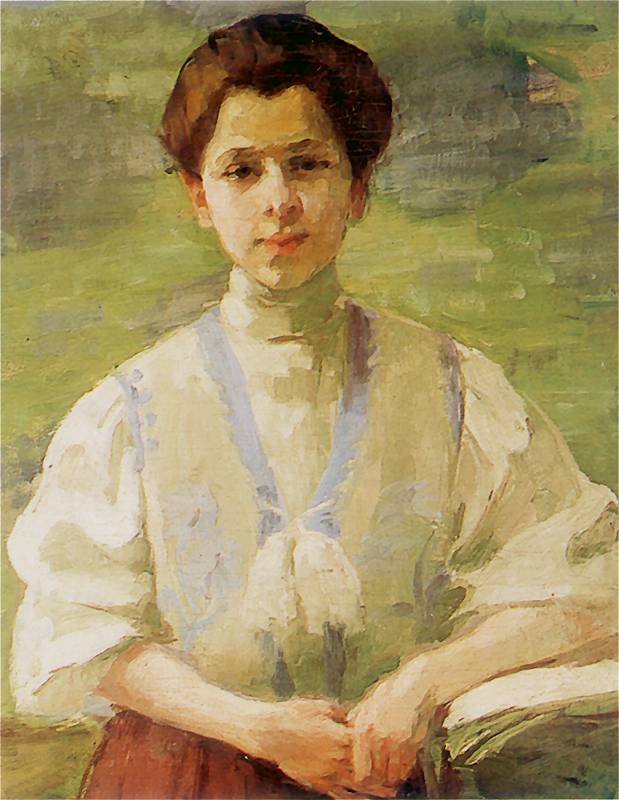 |
|
|
|
Post by pjotr on Feb 18, 2013 21:49:36 GMT 1
Marie Walewska Maria Countess Walewska Maria Countess Walewska (née Łączyńska; 7 December 1786 – 11 December 1817) was a Polish noblewoman and a mistress of Emperor Napoleon. In her later years she married count Philippe Antoine d'Ornano, an influential Napoleonic officer.
|
|
|
|
Post by pjotr on Feb 18, 2013 21:53:57 GMT 1
Danuta Hübner.jpg) Danuta Hübner Danuta Hübner (born 8 April 1948) is a Polish economist, academic, and policy maker. She served as European Commissioner for Regional Policy from 22 November 2004 until 4 July 2009, when she resigned to become a Member of European Parliament for the Civic Platform. In 2012, Professor Hübner became a member of the International Honorary Council of the European Academy of Diplomacy.
|
|
|
|
Post by Bonobo on Feb 18, 2013 23:46:20 GMT 1
Olga Boznañska, wow, bravo Jagoda!   I liked her art too. At the uni 25 years ago I gave a speech on her picture of a girl which fascinated me:  Boznañska:  |
|
|
|
Post by pjotr on Feb 19, 2013 2:15:27 GMT 1
Bonobo,
The image of the girl is fascinating, because it is wonderful painted. And there is some delicacy in it in the sense of the refined or subtleness of her look. There is something in the look of her eyes. Painting is painting. Sometimes things are drawn, pianted or photographed or etched (Graphical techniques) which can't be said in words (proze or poetry), texts (letters essays or articles/notes), lyrics or songs or recorded interviews (radio or television), documentaries or movies.
That is why paintings, drawings, Etchings, lithographs, silk screens and photographs exist.
Cheers,
Pieter
P.S.- I wonder what you said about the painting of the girl?
|
|
|
|
Post by tufta on Feb 19, 2013 9:03:55 GMT 1
I gave a speech on her picture of a girl which fascinated me: Looking at the eyes and flowers, the two magnetic spots of the picture, a song comes to mind The eyes of this girl, like two blues, Thoughts of this girl - white notebooks, full text: lyricstranslate.com/en/oczy-tej-malej-eyes-girl.html |
|
|
|
Post by Bonobo on Feb 19, 2013 22:11:59 GMT 1
P.S.- I wonder what you said about the painting of the girl? First I described the painting, then I tried to analyse it. But I was fooling around as usual and I said the girl looks like scared because she might have seen sth revolting, e.g., a rat and I went on describing the rat - it was big, ugly, bare-tailed, covered with nasty scabs. And the female teacher who had given us that task for Phonetics class told me to shut up immediately as she couldn`t bear any longer. The Polish woman who made it to the toppest top: Wanda Rutkiewicz: On 16 October 1978, she became the third woman, the first Pole and the first European woman to reach the summit of Mount Everest. In 1986 she became the first woman to successfully climb and descend K2, which she did without supplemental oxygen, as part of a small expedition led by Lilliane and Maurice Barrard.en.wikipedia.org/wiki/Wanda_Rutkiewicz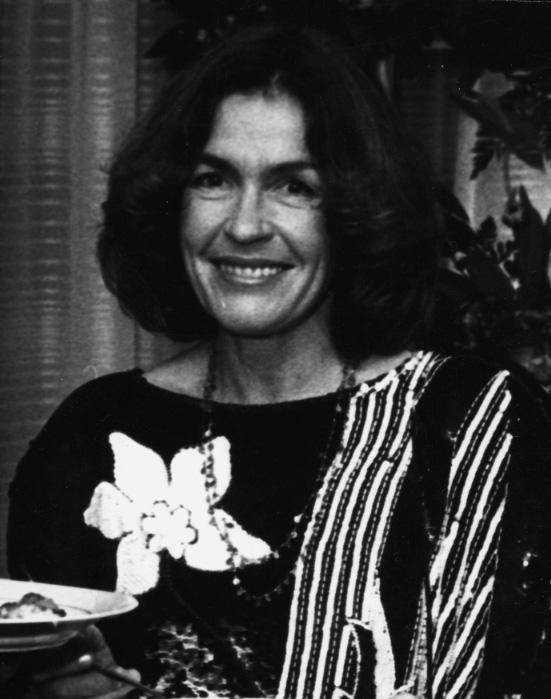    |
|
|
|
Post by pjotr on Feb 19, 2013 23:56:38 GMT 1
Wonderful achievement. I love mountain climbing. My former Amsterdam girlfriend in the ninetees was a mountain climbing fanatic.  ;D  |
|
|
|
Post by tufta on Feb 20, 2013 18:54:54 GMT 1
Hanna Suchocka, Polish PM 1992-3(?)  |
|
|
|
Post by tufta on Mar 2, 2013 11:05:30 GMT 1
Monika Nachy³a, new boss of one of the largest Polish commercial banks -BG¯ 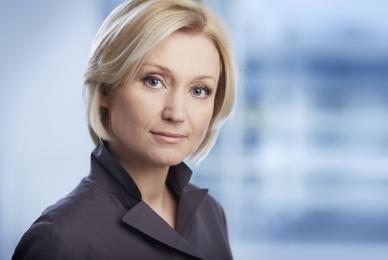 |
|
|
|
Post by pjotr on Mar 2, 2013 18:24:56 GMT 1
Aneta Kręglicka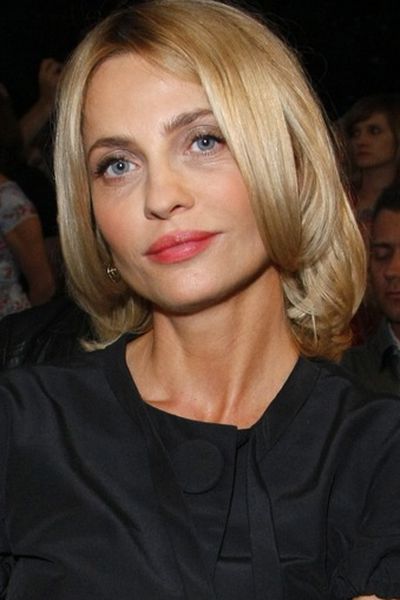 Aneta Beata Kręglicka Aneta Beata Kręglicka (born on March 23, 1965) won the Miss World contest on 22 November 1989 in Hong Kong, representing Poland. She became the first and only woman from Poland to win the title. In the same year, she was first runner-up at Miss International 1989 held in Kanazawa, Japan. Early lifeShe studied economics at Gdańsk University and began graduate studies in Szkoła Główna Handlowa ( Warsaw School of Economics) in Poland. She was a member of the contemporary dance group at Gdańsk University before entering the Miss Poland pageant. Miss WorldIn July 1989, she was crowned as Miss Polonia 1989. In September she traveled to Japan to represent her country at Miss International 1989, almost winning the crown for Poland, becoming the first runner-up to Iris Klein of Germany. After this experience, she had to prepare immediately for Miss World, held in Hong Kong, and on November 22, 1989 won the title of Miss World 1989. For a year she traveled the world, fulfilling her obligations and helping the Miss World Organization with their charitable causes. Life after Miss WorldIn 2006, she took part in the third season of the Polish version of Dancing With The Stars. She was also one of the judges at Miss World 2006, held in Poland that year. She has one son, Alexander, with her husband, director Maciej Żak.
|
|
|
|
Post by pjotr on Mar 2, 2013 18:54:30 GMT 1
Joanna Agacka-Indecka Joanna Agacka-Indecka Joanna Agacka-Indecka (18 December 1964 in Łódź – 10 April 2010) was a Polish attorney, President of the Polish Bar Council from 2007 until 2010. BiographyJoanna Agacka-Indecka graduated from the University of Łódź and then was assistant professor at the Chair of Penal Procedure of the Faculty of Law and Administration of the same university ( 1988–2001). Between 1992 and 1993 she worked in law firms in the United States and the United Kingdom, as well as at DePaul University College of Law in Chicago, Illinois, USA. (The most POlish city of the USA) She received training for attorneys of the International Criminal Court at the Academy of European Law in Trier. In 1994 she was elected member of the Human Rights Commission at the Polish Bar Council, then served as member of the District Bar Council in Łódź. She was elected Vice President of the Polish Bar Council in 2004, and served as its President from 2007 until 2010. 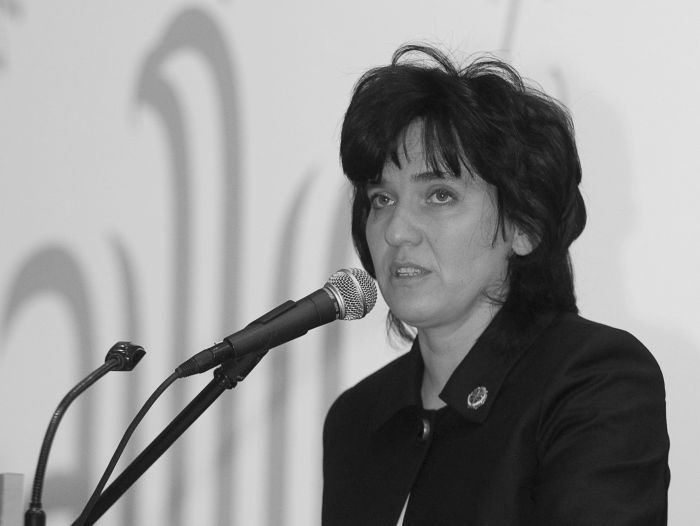 Joanna Agacka-Indecka Joanna Agacka-Indecka was a legislation expert at the Sejm and was involved in lawmaking as representative of the Polish Bar. On 27 June 2009 she received the Knight's Cross of the Order of Polonia Restituta. On 15 February 2010 she was called to the Codification Commission on Penal Law at the Ministry of Justice of the Republic of Poland. She was killed in the 2010 Polish Air Force Tu-154 crash near Smolensk, Russia and was posthumously awarded the Officer's Cross of the Polonia Restituta. pl.wikipedia.org/wiki/Joanna_Agacka-Indecka
|
|
|
|
Post by pjotr on Mar 2, 2013 19:07:31 GMT 1
Krystyna Bochenek Krystyna Maria Bochenek Krystyna Maria Bochenek (née Neuman) (30 June 1953 – 10 April 2010) was a Polish politician, Vice-Marshal of the Senate of the Republic of Poland representing Civic Platform ( Platforma Obywatelska). She was born in Katowice. She was listed on the flight manifest of the Tupolev Tu-154 of the 36th Special Aviation Regiment carrying the President of Poland Lech Kaczyński which crashed near Smolensk-North airport near Pechersk near Smolensk, Russia, on 10 April 2010, killing all aboard. Honours and awardsCommander's Cross with Star of the Order of Polonia Restituta (April 2010)
|
|
|
|
Post by pjotr on Mar 2, 2013 19:20:28 GMT 1
Grażyna Gęsicka Grażyna Gęsicka Grażyna Gęsicka (13 December 1951 – 10 April 2010) was a Polish sociologist and politician and a former (2006 - 2007) Minister of Regional Development in Jarosław Kaczyński's government. From 2009 until her death she was the leader of Law and Justice parliamentary caucus.  She was born in Warsaw. In 1974 she graduated from Warsaw University's Institute of Sociology and in 1985 received her doctorate. She was a former member of the Polish Sociological Society and the Association Internationale des Sociologues de Langue Francaise. She spoke English and French. She was listed on the flight manifest of the Tupolev Tu-154 of the 36th Special Aviation Regiment carrying the President of Poland Lech Kaczyński which crashed near Smolensk-North airport near Pechersk near Smolensk, Russia, on 10 April 2010, killing all aboard.[2] On April 25, she was buried in the Smolensk Cemetery Headquarters Military Cemetery in Warsaw. On 16 April 2010, Gęsicka was posthumously awarded the Commander's Cross of the Order of Polonia Restituta.
|
|
|
|
Post by pjotr on Mar 2, 2013 19:29:01 GMT 1
Izabela Jaruga-Nowacka.jpg) Izabela Jaruga-Nowacka Izabela Jaruga-Nowacka (23 August 1950 – 10 April 2010) was a Polish political figure who had served in the national Parliament ( Sejm) since 1993 (with a four-year hiatus in 1997–2001) and, in May 2004, rose to become Deputy Prime Minister under Prime Minister Marek Belka, serving until October 2005, while also, concurrently, filling in his cabinet, from November 2004 to October 2005, the position of Minister Polityki Społecznej [ Minister for Social Policy].  A native of the Baltic seaport city of Gdańsk, the capital of the Pomeranian Voivodeship, Izabela Jaruga-Nowacka earned a degree in ethnography from the University of Warsaw and, during the 1970s and 80s was employed at the Institute for Science Policy and Higher Education ( 1974–76) and the Institute of Socialist Nations at the Polish Academy of Sciences ( 1976–86). Although not politically active during the Communist period, near its end, in the mid-1980s, she joined the League of Polish Women then, in 1991, became active in Ruch Demokratyczno-Społeczny [Democratic-Popular Movement] and, in the election of 1993, was elected to the Sejm as a member of the Labor Union party. A dedicated feminist, she remained a member of Sejm 1993–97, Sejm 2001–05, Sejm 2005–07 and was elected for the fourth time in October 2007, running on the platform of the new Left and Democrats party. Izabela Jaruga-Nowacka and her husband, mathematician Jerzy Nowacki, rector of the Warsaw-based Polish-Japanese Institute of Information Technology, have two daughters, Barbara and Katarzyna. She was listed on the flight manifest of the Tupolev Tu-154 of the 36th Special Aviation Regiment carrying the President of Poland Lech Kaczyński which crashed near Smolensk-North airport near Pechersk near Smolensk, Russia, on 10 April 2010, killing all aboard. On 16 April 2010, Jaruga-Nowacka was posthumously awarded the Commander's Cross with Star of the Polonia Restituta. 
|
|
|
|
Post by pjotr on Mar 2, 2013 19:48:09 GMT 1
Jolanta Szymanek-Deresz Jolanta Dorota Szymanek-Deresz Jolanta Dorota Szymanek-Deresz (pronounced [jɔˈlanta ʂɨˈmanɛk ˈdɛrɛʂ]; July 12, 1954 – April 10, 2010) was a Polish lawyer and politician. Szymanek-Deresz was born in Przedbórz. She was elected to Sejm on September 25, 2005, getting 9,723 votes in 16 Płock district, as a candidate for the Democratic Left Alliance. She was listed on the flight manifest of the Tupolev Tu-154 of the 36th Special Aviation Regiment carrying the President of Poland Lech Kaczyński which crashed near Smolensk-North airport near Pechersk near Smolensk, Russia, on 10 April 2010, killing all aboard. On 16 April 2010, Szymanek-Deresz was posthumously awarded the Commander's Cross with Star of the Order of Polonia Restituta. 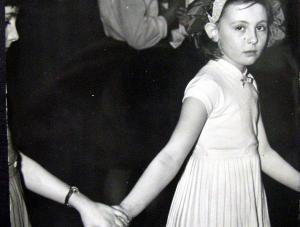 
|
|
|
|
Post by pjotr on Mar 2, 2013 19:55:11 GMT 1
Anna Walentynowicz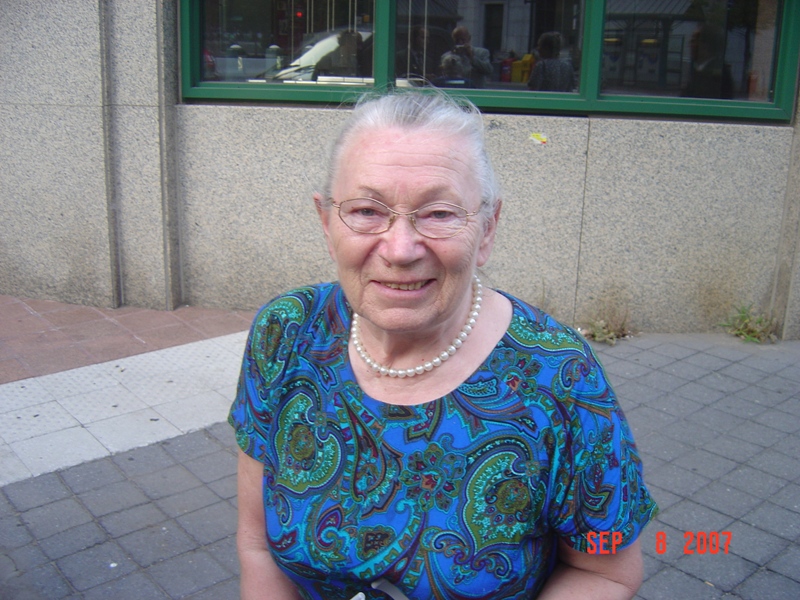 Anna Walentynowicz Anna Walentynowicz (August 13, 1929 – April 10, 2010) was a Polish free trade union activist. Her firing in August 1980 was the event that ignited the strike at the Lenin Shipyard in Gdańsk that very quickly paralyzed the Baltic coast and a giant wave of strikes in Poland. The Interfactory Strike Committee [MKS] based in the Gdańsk shipyard eventually transformed itself into Solidarity trade union, of which she became a prominent member. By September more than million workers were on strike in support of the twenty one demands, making it the largest strike ever. Walentynowicz, whose name became synonymous with the strike became an organizing slogan [Bring Anna Walentynowicz Back to Work!] in the early days of the Gdansk strike, is now widely regarded as " mother of independent Poland."   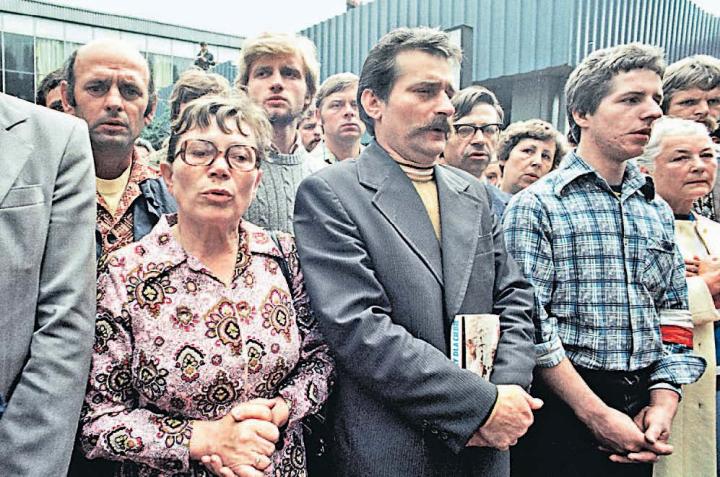
|
|
|
|
Post by pjotr on Mar 2, 2013 20:17:59 GMT 1
Ewa Kopacz Ewa Kopacz Ewa Kopacz (born December 3, 1956 in Skaryszew) is a Polish politician and a deputy in the Sejm. She is the incumbent Marshal of the Sejm, the only woman to have held the post. In addition, she has been Minister of Health since November 2007. Kopacz has been a member of the Civic Platform since 2001. Prior to entering politics, she was pediatrician and general practitioner.  Sejm of the Republic of Poland Sejm of the Republic of PolandKopacz was first elected as a deputy of the Sejm in 2001. She was subsequently re-elected in 2005, 2007 and 2011. In November 2011, she was elected the Marshal of the Sejm. Minister of HealthIn 2009 Kopacz became an international presence on the Internet by requesting pharmaceutical companies to present the advantages of swine flu vaccines, and demanding they take full responsibility for the side effects. She advised the Polish government to wait until proper testing had been done on the vaccine before investing in it, citing the fact that seasonal flu exceeds the current WHO criteria for pandemic every year but there has been no declaration of a pandemic of this much more dangerous seasonal flu.[citation needed] Pro-life activists in Poland had called for her excommunication after she was involved in arranging an abortion for a 14-year-old girl, citing canon 1398, which automatically sanctions anyone who allows for the procedure to occur. 
|
|